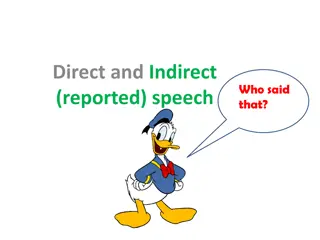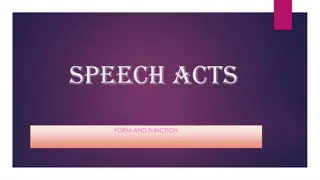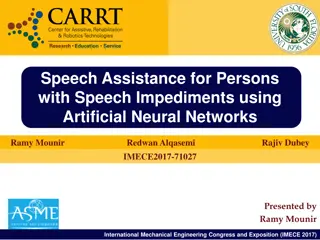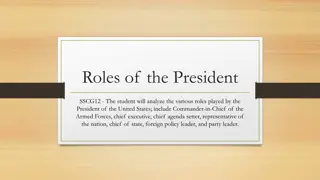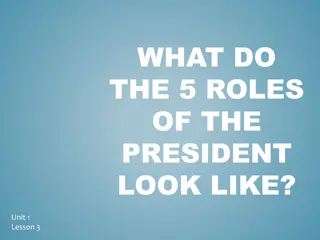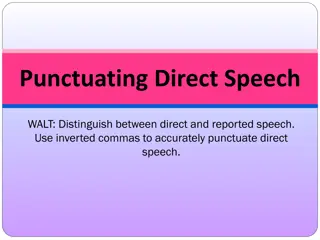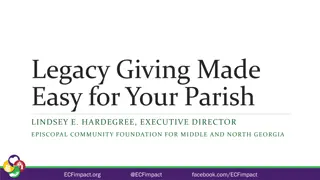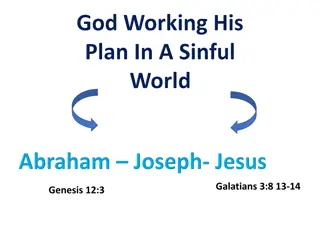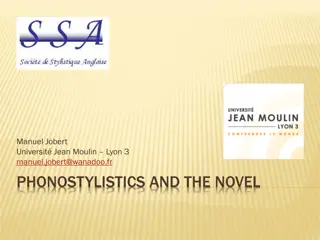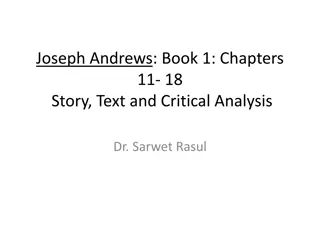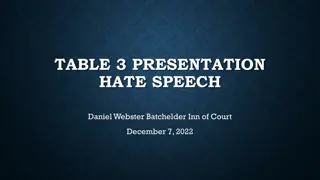Chief Joseph's Powerful Speech and Legacy
Explore the impactful speech of Chief Joseph, leader of the Nez Perce tribe in 1877, as he expresses concerns for his people's welfare and reflects on the injustices they face. Through analyzing the text, uncover the deep emotions, historical context, and significant decisions that shaped Chief Joseph's powerful legacy.
Download Presentation

Please find below an Image/Link to download the presentation.
The content on the website is provided AS IS for your information and personal use only. It may not be sold, licensed, or shared on other websites without obtaining consent from the author.If you encounter any issues during the download, it is possible that the publisher has removed the file from their server.
You are allowed to download the files provided on this website for personal or commercial use, subject to the condition that they are used lawfully. All files are the property of their respective owners.
The content on the website is provided AS IS for your information and personal use only. It may not be sold, licensed, or shared on other websites without obtaining consent from the author.
E N D
Presentation Transcript
What does the text say? General Understanding Who is delivering the speech? What happened?
What does the text say? General Understanding Without yet knowing who Looking Glass and Toohulhulsote are, what can we say about their roles in this decision?
What does the text say? Key Details What concerns does Chief Joseph have about the health and welfare of his people? How do you know?
Select some one in your group to read the speech aloud. Add pauses, inflections, intonations, and emphasis (prosody) to the text.
How does the text work? Vocabulary What does Chief Joseph mean when he says, From where the sun now stands?
How does the text work? Vocabulary What is the tone of this speech? What words and phrases support your claim?
How does the text work? Structure How does the text structure convey Chief Joseph s mood?
How does the text work? Structure What is it about the use of the word forever in the last line, I will fight no more forever that makes this statement so memorable?
What does the text mean? Inferences Who is Chief Joseph referring to when he says, I want to have time to look for my children ? What other parts of the speech support your claim?
What does the text mean? Intertextual connections Chief Joseph succeeded his father as leader of the Wallowa band in 1871. Before his death, the father said to his son:
My son, my body is returning to my mother earth, and my spirit is going very soon to see the Great Spirit Chief. When I am gone, think of your country. You are the chief of these people. They look to you to guide them. Always remember that your father never sold his country. You must stop your ears whenever you are asked to sign a treaty selling your home. A few years more and white men will be all around you. They have their eyes on this land. My son, never forget my dying words. This country holds your father's body. Never sell the bones of your father and your mother. Joseph commented "I clasped my father's hand and promised to do as he asked. A man who would not defend his father's grave is worse than a wild beast."
What does the text mean? Intertextual connections How does this second passage help you to understand the speech? What inner conflict would Chief Joseph have experienced? Where do you see evidence of this conflict in the speech?
Writing From Sources What is the role of courage in surrender? After reading and discussing Chief Joseph s speech I Will Fight No More Forever, write an essay that defines courage and explains the courageousness of Chief Joseph s decision. Support your discussion with evidence from the text. What conclusions can you draw? Constructed using Task Template 12: www.literacydesigncollaborative.org


![Prevention and Combating of Hate Crimes and Hate Speech Bill [B.9B.2018]](/thumb/60513/prevention-and-combating-of-hate-crimes-and-hate-speech-bill-b-9b-2018.jpg)

